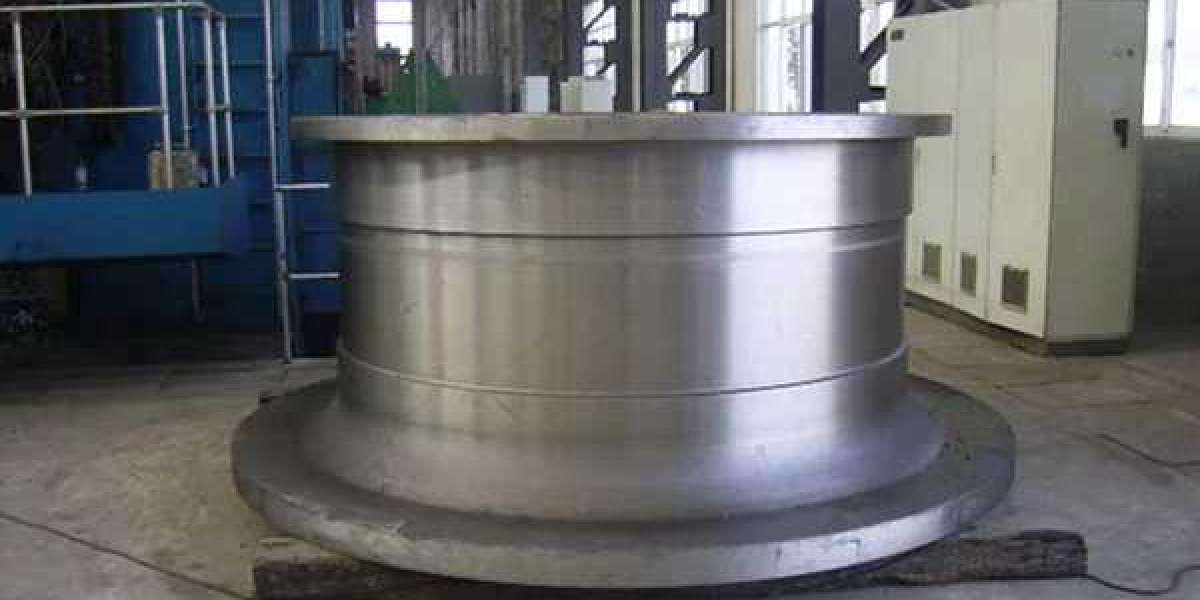In the vast landscape of industrial machinery, the ball mill hollow shaft stands as a critical component that plays a pivotal role in various manufacturing processes. This blog article delves into the intricacies of the ball mill hollow shaft, its industrial applications, and why it is essential for the smooth operation of heavy machinery.
Understanding the Ball Mill Hollow Shaft
The ball mill hollow shaft is an integral part of a ball mill, a type of grinder used to grind and blend materials for use in various industries. The hollow shaft serves as the bearing surface for the rotation of the ball mill shell. It is designed to withstand significant stress and wear, ensuring the longevity and efficiency of the ball mill.
Technically, the hollow shaft must be free from defects such as holes and sand holes, especially in critical areas like the neck of the spherical tile and the circular arc neck of the shell connection. The precision and smooth finish of the spherical tile are achieved through meticulous grinding after partial machining, which demands a high standard of casting technology.

Industrial Applications
1.Cement Industry
One of the primary applications of the ball mill hollow shaft is in the cement industry. Here, ball mills are used to grind raw materials such as limestone and clay into a fine powder known as raw meal. This process is crucial for the production of cement, as the raw meal is then heated in a kiln to produce clinker, which is ground with gypsum to form cement. The hollow shaft's durability and precision are vital for the consistent grinding process required in cement production.
2.Metallurgy
In metallurgy, ball mills are employed to grind ores and other materials to a fine powder. This process is essential for extracting metals from their ores. The hollow shaft of the ball mill ensures that the mill can operate continuously, handling the abrasive nature of the materials being processed. The use of high-strength steel in the construction of the hollow shaft contributes to its ability to withstand the harsh conditions of metallurgical processes.
3.Building Materials
The production of building materials such as tiles, bricks, and other ceramics also relies on ball mills. The hollow shaft's role in these applications is to ensure the uniformity of the ground materials, which directly affects the quality and strength of the final products. The precision and stability of the hollow shaft are critical in maintaining the quality standards required in the building materials industry.
4.Chemical Industry
In the chemical industry, ball mills are used to mix and grind chemicals to achieve the desired consistency and reactivity. The hollow shaft's ability to handle various materials, including those that are corrosive or reactive, makes it an indispensable component in chemical processing plants.
5.Power Generation
Ball mills are also used in the power generation sector, particularly in coal-fired power plants. Here, they are used to grind coal into a fine powder, which is then burned to produce steam for electricity generation. The hollow shaft's robustness and reliability are crucial in this application, as it must handle the abrasive nature of coal and operate continuously to meet the energy demands.
Advantages of High-Quality Ball Mill Hollow Shafts
The benefits of using high-quality ball mill hollow shafts, such as those produced by SHANGHAI SPECIAL METAL CO., LTD, are manifold. These include:
1.Enhanced Durability: The use of high-strength steel and unique heat treatment technologies improves the hardness and impact resistance of the hollow shaft, ensuring its longevity in demanding industrial environments.
2.Precision and Stability: The precision engineering and optimization of the hollow shaft's technological structure according to the operational features of the ball mill ensure stability and a longer working life, even under long-term operation.
3.Customizability: The ability to customize the hollow shaft according to specific industrial needs allows for greater efficiency and performance in various applications.
4.Quality Assurance: Adherence to international quality standards such as ISO 9001:2000 ensures that every step of the production process is traceable and meets stringent quality requirements.

Production Process
The production process of a ball mill hollow shaft involves several critical steps:
1.Wooden Pattern Production: This initial step involves creating a wooden pattern that serves as the mold for the hollow shaft.
2.Molding: The wooden pattern is used to create a mold into which the molten metal is poured.
3.Pouring: Molten metal is carefully poured into the mold, filling it completely to form the hollow shaft.
4.First Cleaning: After the metal has solidified, the mold is broken, and the shaft is cleaned to remove any excess material.
5.Heat Treatment – Grinding (Inspection): The shaft undergoes heat treatment to enhance its mechanical properties, followed by grinding to achieve the required precision and smoothness. Inspections are conducted to ensure quality standards are met.
6.Rough Machining (Inspection) – Finishing Machining (Inspection): The shaft is machined to the required dimensions, with inspections at each stage to ensure precision and quality.
7.Packing – Delivering: Finally, the hollow shaft is packed and prepared for delivery to the customer.
Conclusion
The ball mill hollow shaft is a testament to the importance of precision engineering and robust construction in industrial applications. Its role in various industries, from cement and metallurgy to building materials and power generation, underscores its versatility and indispensability. As industries continue to evolve and demand higher efficiency and durability from their machinery, the ball mill hollow shaft remains a critical component that supports these advancements. Investing in high-quality hollow shafts not only ensures the longevity of machinery but also contributes to the overall efficiency and productivity of industrial operations.
The Role of a Ball Mill Hollow Shaft in Cement Machinery








